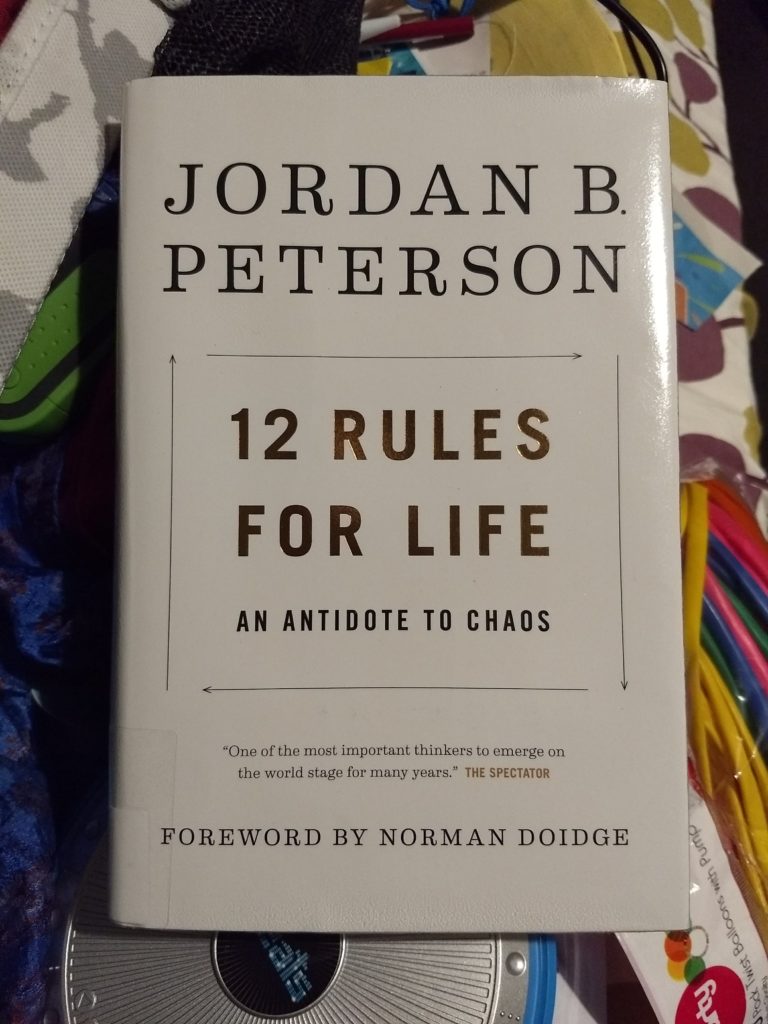 This is fun to read and it may change your life. The subtitle describes it best: chaos (particularly perhaps the chaos of the modern world) is what Peterson dreads, and he offers prescriptions, strategies and even commandments for how to preserve an ordered and civilised life from the relentlessly pounding waves of entropy. And all presented using language that virtually demands to be read out loud.
This is fun to read and it may change your life. The subtitle describes it best: chaos (particularly perhaps the chaos of the modern world) is what Peterson dreads, and he offers prescriptions, strategies and even commandments for how to preserve an ordered and civilised life from the relentlessly pounding waves of entropy. And all presented using language that virtually demands to be read out loud.
Each of the 12 homely “rules” is really just the starting point for a wide discussion of how life should best be lived. Peterson is a psychologist and a Christian, and those are the lenses through which he views the world. There is a lot about biblical history and teachings — a lot of it is presented as metaphor so it is still somewhat relevant to non-Christian and even non-religious people. But still, there is a lot more bible-bashing than I was expecting, even from such a famously conservative figure. Each of the 12 chapters ends with a restatement of the rule as its last sentence. For some reason I find this irritating and twee. And I normally like tweeness.
Peterson offers the idea that traditional cultures had “worked out” a lot of solutions to the problems of life without recording them in permanent form, implying that modern humankind has gone astray somehow. It does seem quite a misty-eyed, romantic view of primitive cultures as being more authentic than our own.
There are a lot of footnotes and references, and yet he still asserts, “the science is in” (on innate sex differences) without offering much evidence. I think that case is just an example of his dislike of political correctness for its own sake. Another reason Peterson is famous is the trouble he got into for publicly opposing some bizarrely restrictive university regulation. Political correctness is a good thing, but sometimes people forget it’s just the means to an end. When it’s taken as an end in itself, it becomes counterproductive and should be resisted. Peterson does resist this, but I think he’s in danger of joining the many who view opposition to political correctness as an end in itself. Too many people overthink this issue. I know I certainly do.
This book is written in an unusual style. I quite like it. It uses many parallel structures. It uses a lot of repetition. It uses a rousing tone like an old-time preacher, whipping the crowd into a delirium with flowery circumlocutions and then — pow! — abruptly telling them to sort their bloody lives out. I know Peterson achieved fame via Youtube videos, and the style comes through very plainly in the tone of this book. The writing in this book is lively and amusing. It’s quite bracing to continually come across sentences like this:
Then the meaning of your life may be sufficient to keep the corrupting influence of mortal despair at bay.
There are a lot of excellent nuggets of wisdom amongst the bloviating. He points out that we should never punish people for doing the right thing:
When someone does something you are trying to get them to do, reward them. No grudge after victory.
It seems obvious, yet when your child actually remembers to close the door after coming inside, so often you might say “finally! I thought you were born in a tent / your ears were just painted on” accompanied by an eyeroll. That is not the sort of positive reinforcement that will get them to do it again. Much better just to say thanks, or even say nothing.
Some good insights come from the idea that each of us contains multiple people. For example, you should motivate yourself to improve by promising yourself small rewards — but make sure to follow through on those promises. If you break promises to yourself then you won’t trust yourself in future, and those incentives won’t work any more.
And he has a really nice description of the conflict inherent in thinking — real thinking. After all, most people don’t actually think. They just take their first thought and go.
To think, you have to be at least two people at the same time. Then you have to let those people disagree.
I have had some interesting disagreements while reading this book, both with Peterson and with myself. It doesn’t have all the right answers, but it does have a lot to think about. I enjoyed reading it and I learned a lot. I couldn’t ask for much more from a book.
Nice write-up. So “p.c gone mad” is a thing then?